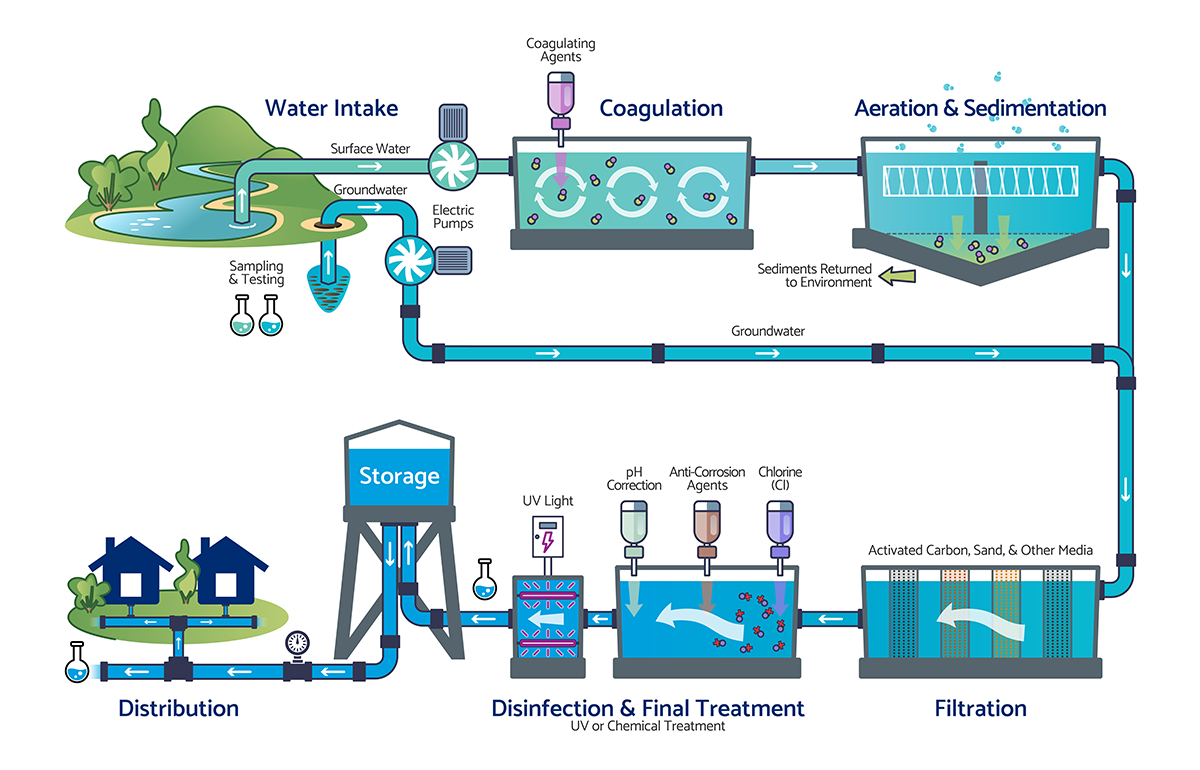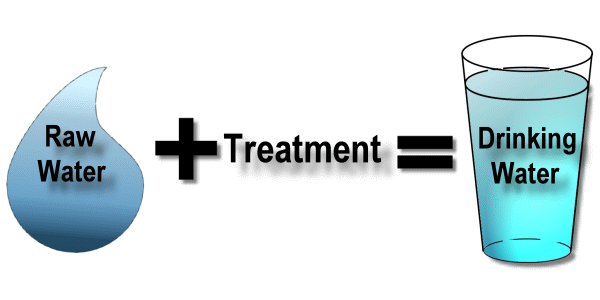Water Technology Startups and Sustainability: How They’re Making a Difference
Wiki Article
Exploring Water Technology Startups: How They Reinvent Lasting Solutions
Water Technology start-ups are emerging as crucial players in the mission for lasting options to global water problems. These business take advantage of innovative technologies to enhance water performance and monitoring. Their contributions attend to pushing obstacles such as shortage and contamination. In spite of their possibility, they encounter numerous challenges that could impact their success. Understanding these dynamics sheds light on the future of water sustainability and the role these startups might play fit it.The Significance of Water Technology in Today's Globe
As global water scarcity magnifies, the significance of water Technology comes to be significantly obvious. Water Technology plays a critical duty in addressing the difficulties postured by lessening freshwater sources and raising need. It includes a wide series of advancements, consisting of advanced filtration systems, wastewater treatment innovations, and wise watering options. These innovations not only enhance the performance of water usage yet likewise advertise sustainable techniques throughout various industries, consisting of agriculture, industry, and urban advancement.The importance of water Technology prolongs past source management. It fosters durability against environment modification impacts, such as droughts and floods, by providing adaptive services for water preservation and administration. In addition, it sustains public wellness by guaranteeing access to safe and tidy alcohol consumption water. As the world encounters growing water-related obstacles, the integration of advanced water innovations is crucial for fostering lasting development and safeguarding water availability for future generations.
Innovative Solutions From Water Tech Startups
While conventional approaches to water administration have served their purpose, a new age of water technology startups is changing the industry with ingenious options (Water Technology Startups). These firms utilize sophisticated modern technologies to deal with pushing water concerns, such as scarcity, contamination, and ineffective distribution. Many startups utilize fabricated knowledge and machine knowing to optimize water use and predict demand, causing even more lasting methodsAdditionally, a number of companies concentrate on creating advanced filtering systems that remove pollutants and make water safe for consumption. Others check out decentralized water therapy innovations, enabling areas to manage their water resources better. Additionally, some start-ups are introducing smart watering solutions that lessen water waste in farming, advertising ecological preservation.
Case Researches: Successful Water Technology Startups
Various water Technology startups have actually become leaders in attending to global water obstacles via ingenious strategies. One notable example is Xylem, which focuses on water analytics and clever framework to optimize water use and reduce waste. Their options have actually been applied in different municipalities, demonstrating substantial enhancements in water administration efficiency.Another effective start-up, Zero Mass Water, has actually established solar-powered hydropanels that remove water vapor from the air, giving lasting drinking water in deserts. Water Technology Startups. This Technology has been released in numerous nations, making sure communities have access to tidy water
Finally, AquaVenture Holdings runs a diverse profile of water-as-a-service options, resolving water deficiency through desalination and wastewater treatment. Their jobs have verified crucial in regions facing extreme water lacks, showcasing the capacity of ingenious water modern technologies to produce long-term, positive impacts. These study highlight the transformative capacity of start-ups in the water Technology sector.
The Role of Smart Technology in Water Management
Smart Technology plays a vital role in modern water management by leveraging IoT applications to maximize source usage. Data analytics enhances effectiveness by providing actionable understandings, while remote tracking services allow real-time oversight of water systems. With each other, these advancements change exactly how water is managed, advertising sustainability and functional performance.IoT Applications in Water
As water shortage and administration challenges intensify worldwide, the integration of Internet of Things (IoT) applications has become a pivotal option in enhancing water resources. IoT Technology helps with real-time surveillance and analysis of water supply, enabling more reliable use and administration. Sensing units deployed in numerous water facilities can track quality, flow rates, and leak, offering valuable information to stakeholders. This data equips energies and customers to make educated choices, decreasing waste and boosting preservation initiatives. In addition, clever irrigation systems make use of IoT to maximize water shipment for farming, making sure that plants obtain the right amount of water at the correct time. Generally, IoT applications are changing conventional water monitoring practices, cultivating sustainability and durability in water resource systems.Information Analytics for Effectiveness
Using data analytics is necessary for improving efficiency in water administration. Water Technology start-ups are progressively making use of sophisticated analytics to maximize resource allowance and decrease waste. By analyzing information from different resources, these start-ups can determine patterns and trends that inform far better decision-making. Anticipating analytics can forecast water need, enabling utilities to adjust supply accordingly, consequently lessening excess and scarcities. Additionally, real-time data handling makes it possible for the immediate discovery of leakages and inefficiencies within distribution systems, considerably reducing functional costs. Moreover, data-driven understandings empower stakeholders to apply targeted preservation approaches, fostering sustainable methods. Basically, incorporating information analytics right into water administration not only enhances operations yet likewise promotes long-term sustainability in water source usage.Remote Monitoring Solutions
While typical water management systems often deal with inefficiencies, remote monitoring services are transforming just how water resources are taken care of. These cutting-edge innovations allow real-time data collection and analysis, enabling stakeholders to monitor water quality, circulation rates, and usage patterns from afar. Utilizing sensing units and IoT devices, remote surveillance gives immediate understandings that promote proactive decision-making. This shift not just improves operational efficiency yet additionally promotes sustainability by decreasing water waste and optimizing resource allocation. Furthermore, remote tracking systems can determine prospective issues prior to they rise, consequently lessening the threat of contamination or framework failing. As water Technology start-ups remain to create these options, the sector is poised for considerable advancements in sustainable water administration practices.Challenges Dealing With Water Technology Startups
Water Technology startups run into substantial obstacles that can prevent their growth and success. Secret issues consist of securing ample funding, navigating through complicated regulatory atmospheres, and completing in a jampacked marketplace. These barriers require calculated planning and technology to overcome.Financing and Investment Challenges
Advancement in water Technology holds tremendous potential for attending to worldwide obstacles, start-ups in this field usually encounter significant financing and investment obstacles. Numerous financiers remain mindful, perceiving the water field as risky due to its complicated governing landscape and lengthy development timelines. Furthermore, start-ups often battle to show immediate success, which can hinder potential backers. Standard endeavor funding may overlook water modern technology, preferring industries with quicker returns, such as technology or consumer products. Protecting grants and federal government funding can be competitive and taxing, more making complex monetary security. Because of this, many innovative water Technology start-ups find themselves in a precarious placement, requiring imaginative financing strategies to navigate these economic barriers and achieve their goalsRegulative Conformity Issues
Guiding governing compliance is a considerable challenge for start-ups in the water Technology market, as they must grapple with a myriad of local, nationwide, and worldwide laws. These guidelines commonly incorporate water quality criteria, environmental management legislations, and safety and security procedures, which can differ extensively across jurisdictions. Startups may discover it hard to browse this complicated landscape, particularly when scaling procedures or getting in new markets. The prices connected with conformity can be significant, diverting sources away from development and item development. In addition, hold-ups in obtaining necessary licenses or accreditations can prevent growth and market entrance. A robust understanding of governing frameworks is crucial for these startups to guarantee lasting operations and prevent possible legal repercussions.Market Competitors Characteristics
As water Technology start-ups emerge in an affordable landscape, they face various obstacles that can impede their growth and development. Developed companies frequently control the market, leveraging resources and experience to keep their positions. Start-ups deal with restricted financing, which limits r & d capacities, making it challenging to contend on Technology and pricing. In addition, the rapidly evolving nature of water technologies demands constant adaptation, more straining start-up sources. Regulative hurdles can complicate market entrance, as compliance with ecological requirements is essential yet expensive. Finally, attracting competent skill in a niche field provides another barrier, as bigger firms might provide even more enticing employment plans. Consequently, these aspects develop a complex setting for water Technology startups aiming to do well.
The Future of Water Technology and Sustainability

The future of water Technology will likely concentrate on incorporating expert system and data analytics to optimize water circulation and use patterns. By taking advantage of real-time information, firms can predict scarcities and handle resources more properly. Lasting practices will certainly end up being a foundation of the sector, encouraging round economic situations where water is recycled and dealt with. Inevitably, the continued development of water Technology will be important in producing resistant frameworks capable of fulfilling the obstacles postured by environment change and population growth while promoting environmental stewardship.
Often Asked Inquiries
What Are the Secret Metrics for Reviewing Water Technology Startups?
Trick metrics for examining water Technology start-ups include market potential, scalability, customer procurement expenses, earnings development, technology development, regulatory compliance, ecological impact, affordable advantage, and team know-how, all crucial for identifying lasting feasibility and success.How Can People Support Water Technology Innovations?
Individuals can support water Technology advancements by investing in startups, supporting for policy modifications, participating in area campaigns, sharing understanding about sustainable practices, and advertising recognition of water issues through social networks and regional events.What Are Common Funding Resources for Water Tech Startups?
Typical funding sources for water tech start-ups consist of equity capital, federal government grants, crowdfunding systems, angel capitalists, and business collaborations. These economic methods help facilitate innovation and advancement in sustainable water administration modern technologies.
Which Industries Advantage Most From Water Technology Advancements?
Industries such as farming, energy, production, and local services profit considerably from water Technology advancements. These developments improve water efficiency, lower expenses, and advertise sustainable techniques, ultimately adding to ecological preservation and resource management.Exist Any Regulatory Challenges Details to Water Innovation?
Yes, water Technology deals with regulative challenges, including conformity with environmental requirements, allowing processes, and varying regional policies. These complexities can prevent advancement and reduce the execution of brand-new innovations in the water monitoring sector.Water Technology startups are emerging as vital gamers in the mission for lasting options to global water concerns. As global water scarcity heightens, the relevance of water Technology becomes increasingly apparent. Others explore decentralized water treatment technologies, enabling areas to handle their water resources extra efficiently. An additional successful startup, Absolutely no Mass Water, has developed solar-powered hydropanels that remove water vapor from the air, providing lasting alcohol consumption water in dry areas. Their tasks have shown essential in regions encountering serious water shortages, showcasing the potential of innovative water innovations to develop enduring, favorable impacts.
Report this wiki page